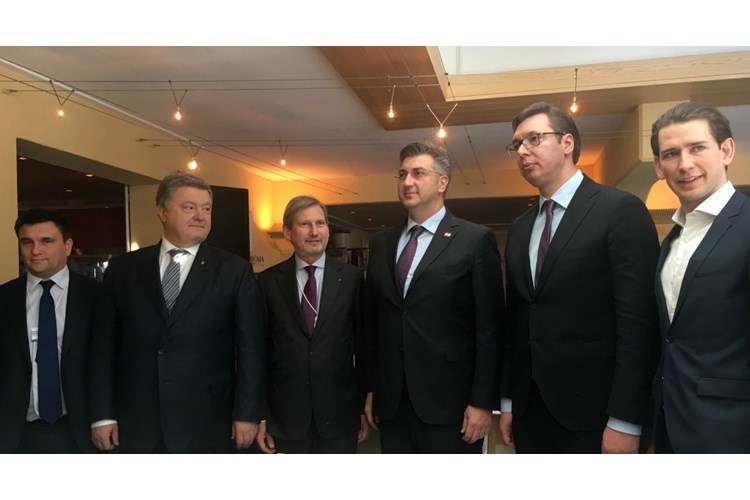


"Croatia has great experience and serious political responsibility, both as a member of NATO and of the EU, to be a leader in resolving problems," Plenkovic told a joint press conference with European Union Enlargement Commissioner Johannes Hahn, with whom he had met bilaterally and participated in a panel.
The panel included Serbian Prime Minister Aleksandar Vucic, Ukrainian President Petro Poroshenko and Austrian Foreign Minister Sebastian Kurz, as well as business executives interested in investing in Europe's eastern and southeastern neighbours.
"The panel was extremely helpful to us to analyse the situation, the actual dynamics of those countries getting closer to the EU, the sentiment within the EU, and, of course, the meeting of the criteria," Plenkovic said at the end of his participation in the World Economic Forum.
Hahn said that the EU was interested to see that the countries represented in the panel, not just those from the Western Balkans but also those from the eastern neighbourhood, joined the European Union as soon as possible. We must look forward, not backward, he said.
"The key now will be to find the right dynamics between sending positive messages to the aspirant countries and the realistic pace of their further getting closer to the EU, at the same time avoiding any destabilisation in southeastern Europe," Plenkovic said.
He said that Croatia would not increase tensions with any of the countries and wanted to be a stabilising factor. "Croatia must be a stabilising factor both in terms of sending messages and in terms of rhetoric," he added, noting that this was what the EU partners expected of Croatia.
Plenkovic said that there had been no time today for any detailed talks with his Serbian counterpart, who also took part in the panel. "There was no talk of the substance of relations between Croatia and Serbia," he added.
Serbian Prime Minister Vucic told the press earlier that Croatia's prime minister and president had an open invitation to visit Serbia.
"I would want that meeting to be thoroughly prepared. First there should be contacts at the diplomatic and ministerial levels, we should put the outstanding issues on the table and then try to settle them through dialogue. That's the goal of my government and my personal goal," Plenkovic said.
He noted that that would be difficult to do before elections in Serbia, adding that there was plenty of time for such a meeting this year.